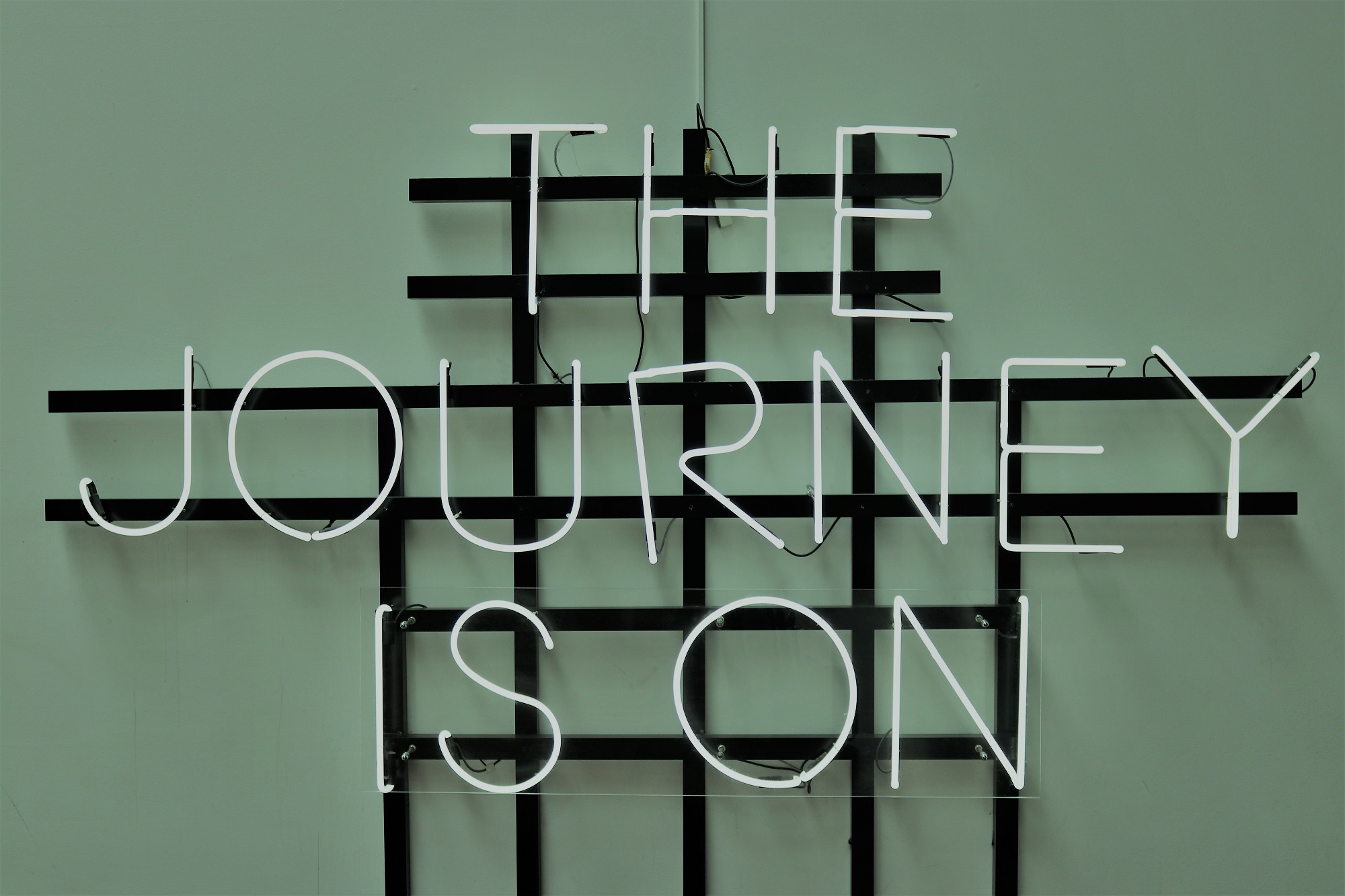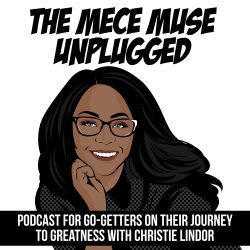AMA interview with Sowm, a seasoned consultant sharing her career journey and experiences as a consultant in the oil and gas space. During this episode, Christie and Sowm give mentoring advice to a consultant that is seeking career guidance to figure out how to best manage a peer that constantly tries to take credit for his work or micromanage him in an attempt to create a business case to get promoted.
Listen to the Podcast Here:
Podcast: Play in new window | Download | Embed
Subscribe: Apple Podcasts | Email | TuneIn | RSS | More
In our episode, we will be doing a segment that I call AMA, Ask Me Anything. For those that are new to the show, AMAs are essentially virtual fireside chat that I have with other seasoned consultants that shared their journey in the profession. We get a chance to catch up with them. I also had a mentee of mine that reached out to me. They have a peer that’s driving them insane and I’m going to ask our guest to help us give him some feedback on what to do.
Interview with Sowm
I have the utmost pleasure of connecting with Sowm. Sowm, how are you doing?
I’m good. Thank you for having me, Christie.
Before we get started, maybe you can give a quick one-liner introduction. Share with people a little bit about your background and how long you’ve been in consulting.
I am a program/project management consultant and I specialize in energy and utilities domain. I have about nine years of consulting experience and various companies, clients and roles. I’m working for a client in Indiana and this as an independent system operator for the Midwest Energy domain.
I’ve done work in different industries and factories, but I’ve never done stuff in the energy space. My first question to you is twofer. One, how did you decide to go into consulting as a profession? The second piece is how did you choose industry? How did you get that expertise?
For consulting, I was finishing up my grad school. I have a degree in electrical engineering. My minor was in telecoms. When I was looking for jobs, everything was telecom-related and that wasn’t exciting to me at that time. I thought consulting would be good because I’ve been reading up on what consultants do and the lifestyle was fascinating for me. All the travel and everything. I do want to be a consultant. I started reading up and preparing for consulting interviews, but I graduated in peak recession time. There weren’t as many opportunities and I wasn’t able to get a consulting gig out of college. You asked how I chose the energy industry, I always like to say that it chose me because I didn’t even know I was getting into it.
My first job was for a software company and I started in technical support, business analysis-type role. The software company happened to make software for utilities and ISOs, the Independent System Operator. That’s how I got started. I spent a few months doing that and after that, my company started deploying me out to different clients for implementation work. That’s where my consulting dream came true when I was working for a big consulting company. It was interesting how everything fell in place and things started happening.

It’s funny how things do sometimes choose us. I have the same type of experience with my own in the industries that I have been exposed to. I don’t think it was purposeful. I think it chose me. I can definitely relate. Now, you’re almost a decade into the profession. Has it been everything you expected it to be and more?
I’ve had a good run and I’ve been lucky to have good experiences. Lots of learning experiences, I like to call them as well. It comes with its own challenges, with the travel and the different people we’ve worked with. People who are getting into consulting, I want them to know that it’s not all glitter and glamour. It comes with a lot of hard work and challenges. As long as you’re okay with that, that’s a good place to be.
Given that, what would you say makes a great consultant based on your experiences?
The way I look at it, consulting is a little bit different. Consulting has more to do with people than projects because it’s such a huge component, a human component, associated with it. We work with people every day and we are helping them. That’s how I look at consultants. The biggest thing would be to find meaning in what we do. For a great consultant, they should know why they’re doing what they’re doing. Finding that why is important. You could be testing a software and if that’s all you see, you’re missing out because you’re making bigger impact than that. You might be testing the software that’s going to be used in a hospital and could save somebody’s life one day.
Know what impact you’re making it. It’s always bigger than what you see. Put some thought into that. That’d be one of my big ones. The other one would be building trust with people we work with. You want to be that person people can depend on. Do what you tell them you will do. Keep your word. As long as people know that they can depend on you, they can trust you, you’ll never be out of work.
You shared on two really key principle and both terms of those I cover in my book. You talk about that credibility, being able to have that follow through, making sure you keep your word and protecting your integrity. I totally agree on that. Going back to the point about impact, a part of that also comes from intention. There’s another concept that’s covered in the book. If you walk into a client site and you’re saying, “I’m just here to finish this deliverable,” you’re going to do just that. To your point, if you’re coming into the site and you’re going to help put a solution out there that can potentially save lives, you’ve got to look at it differently.
A lot of people miss that piece of intention on purpose, especially in consulting and especially if you’re working for a large firm. I’ve worked for bigger firms before my current job and I understand how the staffing and the resource plans work in those companies. Having a conversation with one of these people I met and he’s a consultant in a big firm as well, the biggest thing he said, “I just feel like a number. I don’t feel like a person. I don’t feel I’m treated like a person. I don’t feel like I’m doing any useful work.” I started asking questions of what he does and turns out, his work is making a real impact. He didn’t see it that way. I’m hoping, after that conversation he started looking at his work a little bit differently, but this is one thing that people don’t often talk about in the consulting world. We’re always told to be a certain way, act a certain way or dress a certain way. There’s more to consulting than that.
I love that we’re talking about this because this is exactly the type of information younger consultants need. If you’re like myself, you may have had a mental map of what you think consulting is and hearing these perspectives is extremely helpful. Along those lines, what advice would you give your younger self now that you know what you know now?
One of the things would be ask more questions. I thought as a consultant, I was supposed to know everything, which was wrong. Luckily, I learned without much damage. Ask more questions if you don’t understand the problem would be one big one. You don’t have to know everything. That’d be the biggest one. It’s crazy how we come up with these urban legends in our mind because it is true. You think you have to know everything and it’s knowing how to get to the right answer and not having the right answer is critical.
My last question for you for this AMA is what is the most random thing that you have witnessed as a consultant, or the craziest thing? I know the travel and dealing with different types of people, this stuff that happens, random encounter. Share with us a random encounter experience that you had.
I was traveling, and the flight was delayed. We had to board the plane and then de-board. When we de-boarded, they ran out of coupons. The airlines they ran out of coupons, so we had to book our own hotel. This lady comes up to me and says, “I got the coupon from the airlines. Would you like to share a room with me?” I’m like, “What?” Stranger danger, “No, ma’am.” She’s like, “Would you like to share the room with me?” I was like, “I don’t even know you.” You can kill me and leave with my stuff.
Was she a passenger on the plane?
Yes, she was one of the fellow passengers and there was a huge line. Everybody was getting coupons for hotel stay for the night because the flight wasn’t going to leave until next day. By the time I got to the desk, they said, “We ran out of coupons. You’ll have to book your own hotel.” This lady heard that and she comes up to me and says, “I got a coupon, so I have a hotel room. Would you like to share that room with me?” I’m like, “Thanks, but no thanks.”
Was she sitting next to you? Did you guys get a chance to know each other?
No, I don’t even know she was on the plane. She could have been a random stranger.
That’s definitely up there for random things. Thank you for sharing that. Thank you so much for this conversation. You provided some cool insights for junior consultants to consider. I do have a mentee of mine that reached out and was wondering, Sowm, if you would be willing to give him some guidance with me? In the spirit of consulting, we can brainstorm something for him.
Yes, let’s do that.
My mentee, his name is Brian. He reached out to me and he was sharing that he has a peer up here. He’s been on a project now. He’s been on this project about a month. The project’s going to be for the next eight months or so. He has one of his peers. It’s him and two others. They’re three senior consultants on the project. One of them is about a year ahead as a rank and he’s up for promotion. This person is driving Brian crazy because he’s trying to micromanage everything that Brian and this other senior is doing.

From what Brian is describing to me, it sounds like he’s trying to go up for promotion. He’s trying to demonstrate that he’s got leadership skills, so he starts taking on their deliverables or asking them when are they going to put things in. They already have a manager, so their manager is already doing that. Plus, this colleague of theirs is doing that as well and it’s driving Brian up the wall. He’s like, “Christie, I don’t know how I’m going to last on this project. What can I do to stop driving the two of us crazy?” Have you ever seen something like that in your experience, Sowm?
Yes, this happened. It sounds like the other person is trying to take credit for what the other team members are doing, Brian and the other member. This happens a lot. I’ve seen that a lot and I do have an example for Brian. One of the things to remember for Brian is it’s not personal. Take that out of the equation. It’s not about Brian. It could have been any other person in that place and this person would have done the same thing to them. Knowing that would help get taking the emotion out of this situation.
A similar thing happened to me some time back. They were trying to position themselves as a leader and securing that reputation for themselves. They were taking information from me and presenting to the leaders and things like that. At first, I felt I felt attacked a little bit and I felt like they’re taking credit for my work. I try to remove myself from the situation and thought about it again and it turns out, it wasn’t personal towards me. It wasn’t directed towards me. They would have done it if it was somebody else.
The way I resolve this situation for myself was literally having a conversation. I talked to this person. I took them in a room and I was like, “This is how I feel. This is what’s happening and I’m not comfortable with this. If I’m doing the work, I would like to present it myself and if you are presenting it, I’d like to be there and be acknowledged for what I’ve done. I’m not comfortable with you taking this information and passing it along without me in the picture.” We had that conversation. It was a difficult conversation. I’m not going to lie, I am not confrontational by nature. I had to prepare for it in my head before I talk to them. After the conversation was done, it was a little bit better for a day and it happened again a couple of days later. I had to hold them back in the room and say, “We talked about this, this is not what we decided. This is what the decision was and this is what we’re going to do. If you have a problem, let’s talk about that.”
After the second conversation, things got a little bit better. We decided as to who’s going to do what and we decided the responsibilities and the duties very clearly so we’re not stepping on each other’s toes. After the second conversation, it helped separating the two of us. If I’m doing the work, I’m presenting it. If you’re doing the work, you’re presenting it. That’s how we’re going to do it. That conversation helped me in my situation and it was a difficult conversation to have for me personally but it was necessary. That would be my recommendation for Brian. Christie, do you want to add to that? If you’ve seen something similar?
Let me first start by giving you kudos. The fact that you were able to connect with your colleague and do it in a way that you didn’t have to go and escalate it up to management, you don’t have to escalate it to other people and you dealt with it within your own, that’s awesome because I’ve been a manager. I’ve heard this happen from a mentee, but I’ve heard it from my counselees. I’ve heard it happen to someone on my team. They’ll come to me in confidence and share the feedback. The fact that you were able to handle on your own, kudos, even though it was hard, but you did it. Own that. I like the approach you had because it showed you took ownership and you took accountability to drive the outcome and you guys got through it.
Sometimes it can also depend on the other person on how they take it. It’s such a sticky situation. It sounds like, in your case, it took a second time and then they finally got it. They did it and it wasn’t intentional. They’re trying to show or demonstrate an ability or a skill, and it’s not meant to do anything to you. There are times where it doesn’t go that well and it’s how do you manage that appropriately. Another piece to it is if you’re on a project and you have multiple people at the same level, being able to clearly say who’s doing what, but that’s also something you can work with your manager upfront.
If you’re coming onto our project and you know upfront there’s a work stream or it’s one engagement and there’s three or four of you at the same level, chances are there may be a little bit of overlap. It’s being very clear up front, working with your manager that say, “Here’s what you’re doing. Here’s what this other person is doing. How do you do it together?” It can also be rotating. Let’s say if it’s the same. It sounds like in your case, there was an opportunity that you both had a lane almost in what you were doing, and you can both explain certain things. If it’s the same deliverable, you can also rotate it. You can rotate it and say, “This week, I will present or the following you can present.”
You can do it in a way that you help each other out and you all show that you can shine. If it’s done in that light, you can share the spotlight without it being the, “It has to be me or it’s not me.” We can do that. The more you do that, it builds trust amongst the team, but you have each other’s backs. At the end of the day, that’s the biggest thing is it’s not about you. It’s not about the person as an individual. It’s about the collective team effort and that’s usually what consulting is about. It’s not just, “It’s about what I did,” It’s about what we did. The more younger consultants get in the habit of that mindset, the more successful they’ll be. It reminds me of the proverb, “If I want to go fast, I go alone. If I want to go farther, I go as a team.”
For the client, at the end of the day, they’re looking at the team. They were never going to be like, “Who is it in that team did what?” They only care about the deliverable and the quality of it.
To track that younger consultancy to fall out of, don’t fall into the trap of trying to get the credit. People that try to get the credit, whether that means them not sharing the spotlight or if that means that it’s all about them, those types of folks, it’s hard for them to last long-term in consulting. If they do, they test everybody around them off because it’s not about that. That’s one thing I would say as a younger consultant. Don’t focus.
It’s not about all about you, it’s about the impact that your team, you and the firm is bringing to the client. At the end of the day, that’s what it’s about. Hopefully Brian, this helps a little. Feel free to bounce different scenarios off. Every scenario’s going to be different depending on the person. I liked the way Sowm mentioned taking ownership of it and having a conversation. That’s spot on. Thank you for that. Sowm, if you had any other last thoughts you wanted to share with the audience?
My parting thought would be just have empathy for people who work with. Don’t forget everybody you worked with are people first and then clients, co-workers, and whoever you work with. Don’t forget that. I feel like in the consulting world, we tend to forget that. Let’s try to remember we’re working with people.
Go-getters, if you have a career dilemma or just wanted another opinion, feel free to email us with your questions at MECEMuseUnplugged.com. Thank you Sowm for joining us and have a great day everyone.
I hope you enjoyed our episode. This pop-up podcast was inspired by my book, The MECE Muse: 100+ Selected Practices, Unwritten Rules, and Habits of Great Consultants. I have people asking me over the last year many questions about this book. The one question that comes up constantly is, “Christie, you have such a demanding career. How did you find time to write this book?” The answer is simple. I sought to become the mentor that I wish I had earlier in my career. In the beginning of my career, I didn’t have many mentors, mental maps of what success looked like, and I struggled with that in a lot of different ways. What’s nice about struggles is that I overcame them, I grew stronger and more competent and I’m excited where I am today in my career. I want to share what I’ve learned and be able to help you.
I wrote the book with my years of experience, but I also had an amazing opportunity to connect with over 50 or so consulting partners and leaders across the industry. Sharing their stories, their antidotes their resources on how you can be a great consultant yourself. Do me a favor; pick up your phone right now. Go to www.MECEMuse.com. As you scroll down, you’ll see a little box to sign up for the book presale notification. Go ahead and sign up for it. I’d love to hear your feedback on my book as well as the podcast. Thanks again. Here’s to your journey to greatness.
Links from today’s episode:
- Midwest Energy
- The MECE Muse: 100+ Selected Practices, Unwritten Rules, and Habits of Great Consultants


